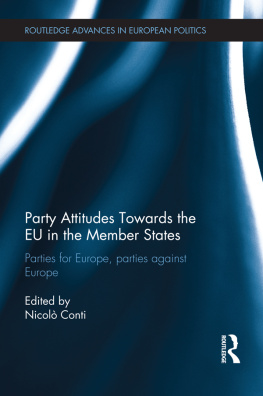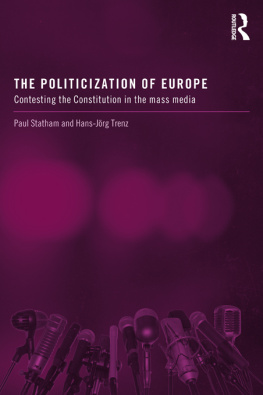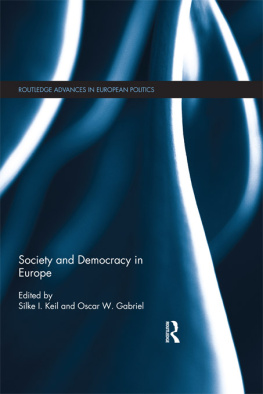Racial Discrimination
Routledge Research in Race and Ethnicity
1. Racial Discrimination
Institutional Patterns and Politics
Masoud Kamali
Racial Discrimination
Institutional Patterns and Politics
Masoud Kamali

New York London
First published 2009
by Routledge
270 Madison Ave, New York, NY 10016
Simultaneously published in the UK
by Routledge
2 Park Square, Milton Park, Abingdon, Oxon OX14 4RN
Routledge is an imprint of the Taylor & Francis Group, an informa business
This edition published in the Taylor & Francis e-Library, 2007.
To purchase your own copy of this or any of Taylor & Francis or Routledges collection of thousands of eBooks please go to www.eBookstore.tandf.co.uk.
2009 Taylor & Francis
All rights reserved. No part of this book may be reprinted or reproduced or utilised in any form or by any electronic, mechanical, or other means, now known or hereafter invented, including photocopying and recording, or in any information storage or retrieval system, without permission in writing from the publishers.
Trademark Notice: Product or corporate names may be trademarks or registered trademarks, and are used only for identification and explanation without intent to infringe.
Library of Congress Cataloging in Publication Data
Kamali, Masoud.
Racial discrimination : institutional patterns and politics / by Masoud Kamali.1st ed.
p. cm.(Routledge research in race and ethnicity ; 1)
Includes bibliographical references and index.
1. RacismEurope. 2. XenophobiaEurope. 3. DiscriminationEurope. 4. Ethnic relationsPolitical aspects. I. Title.
HT1521.K36 2008
305.80094dc22
2008013955
ISBN13: 978-1-135-85660-1 ePub ISBN
ISBN10: 0-415-98987-6 (hbk)
ISBN10: 0-203-89017-5 (ebk)
ISBN13: 978-0-415-98987-9 (hbk)
ISBN13: 978-0-203-89017-2 (ebk)
Contents
| MICHAL KRZYZANOWSKI AND RUTH WODAK |
| MASOUD KAMALI BASED ON A REPORT WRITTEN BY BJRN CARIUS IN COLLABORATION WITH BEATE DIETRICH |
| BRIGITTE BEAUZAMY AND MARIE-CCILE NAVES |
| STEFANO FELLA AND PAOLO PASI |
| NICOS TRIMIKLINIOTIS |
| JUSTYNA SEGE FRELAK |
Acknowledgments
This book would not have been possible without the engagement and contribution of many individuals and research institutions in Europe. I wish to acknowledge the support of the European Commission under its Fifth Framework Programme for the extensive comparative research work conducted within The European Dilemma project. I would like to specially thank the scientific officer of the Commission, Giulia Amaducci, for her significant support during the course of the project. Many researchers and connected individuals have been engaged in this work in different ways, including collecting data and organizing meetings, focus groups, and seminars. They have substantially contributed to this work and I would like to thank all of them, who are too many to name here. I would also like to thank James Milton for his reading and comments at the writing stage.
My special thanks go to the leaders and researchers of the national teams who participated in this project: Ruth Wodak, Michal Krzy

anowski, and Fleur Ulsamer (Austria); Nicos Trimikliniotis (Intercollege, Cyprus); Gerard Delanty and Paul Jones (University of Liverpool, England); John Crowley, Brigitte Beauzamy, and Marie-Cecile Naves (Interdisciplinary Centre for Comparative Research in the Social Sciences, CIR, France); Helena Flam, Axel Philipps, and Bjrn Carius (Leipzig University, Germany); Carlo Ruzza, Stefano Fella, and Giulia Bigot (University of Trento, Italy); Joanna Kurczewska, Justyna Frelak, and Lena Kolarka-Bobinska (Institute of Public Affair, Poland); and finally, the Swedish research team, Tom R. Bruns, Marcus Carlson, Maja Lilja, and Sami Lipponen (Uppsala University, Sweden). I wish also to specially thank both Tom R. Burns and Maja Lilja for their scientific and administrative contribution to the research project.
Masoud Kamali, February 2008
Preface to Second Edited Edition
This book is based on research and project reports produced by the project partners in the course of the European Union financed 5th Framework programme project on racism and xenophobia in Europe: The European dilemma: institutional patterns and politics of racial discrimination (XENOPHOBEU Contract No.HPSE-CT-200200135), which ran from 20022005. The original edition of this book was produced by the project co-ordinator, Masoud Kamali, without fully consulting with the project partners. Chapter 3The uprising of Xenophobic Populist Parties and the Reinforcement of Institutional Discrimination consists of 8 case studies, which are edited and abridged versions of reports produced by the project partners for a project work package on Radical Right Parties, Political and Media Debate and Policy Impacts on Immigration. The authors of these case studies were not identified in the original edition of this book. Where they have so requested, the authors of these case studies are now identified in this new edition. The final edited wording of these case studies is the responsibility of Masoud Kamali, and is not necessarily as it would have been had the authors been fully consulted on the final edited version.
ADDITIONAL ACKNOWLEDGEMENTS TO SECOND EDITED EDITION
In addition to the project partners and researchers referred to in the acknowledgements to the original edition of this book, the following persons also need to be acknowledged. In relation to the German case study, analysis of survey data and a report of the findings from this analysis was carried out by Heike Diefenbach. The report of the Italian case study was written by Stefano Fella, drawing from an analysis and report on the Northern League and its publications produced by Paolo Pasi, and analysis and reports on other political parties, parliamentary debates and media coverage produced by Giulia Bigot, Mara Dalmonech, Daniela Amosso, Sigrid Marchiori, Daniela Mezzena and Elisa Fanelli.
Introduction
RACISM, XENOPHOBIA, AND DISCRIMINATION
Racism, xenophobia, and discrimination are profound liabilities to European Union identity and development. The ideal is clearly stated: Racism and xenophobia are diametrically opposed to everything that Europe stands for in terms of human dignity, mutual respect and understanding and citizenship in the broadest sense (European Commission, Racism and Xenophobia). Yet, the spectre of racism and xenophobia haunts Europe. This spectre derives its rhetorical force from the fact that, on the one hand, contemporary Europeas represented by the European Unionenvisions itself as an open, tolerant, multicultural, democratic community and, on the other, this vision is contradicted by everyday events: persistent stereotyping, stigmatisation, and discrimination at all levels of society; the emergence of political movements and relatively successful political parties espousing racist ideologies; increasing verbal and physical abuse of immigrants and minorities across Europe.









 anowski, and Fleur Ulsamer (Austria); Nicos Trimikliniotis (Intercollege, Cyprus); Gerard Delanty and Paul Jones (University of Liverpool, England); John Crowley, Brigitte Beauzamy, and Marie-Cecile Naves (Interdisciplinary Centre for Comparative Research in the Social Sciences, CIR, France); Helena Flam, Axel Philipps, and Bjrn Carius (Leipzig University, Germany); Carlo Ruzza, Stefano Fella, and Giulia Bigot (University of Trento, Italy); Joanna Kurczewska, Justyna Frelak, and Lena Kolarka-Bobinska (Institute of Public Affair, Poland); and finally, the Swedish research team, Tom R. Bruns, Marcus Carlson, Maja Lilja, and Sami Lipponen (Uppsala University, Sweden). I wish also to specially thank both Tom R. Burns and Maja Lilja for their scientific and administrative contribution to the research project.
anowski, and Fleur Ulsamer (Austria); Nicos Trimikliniotis (Intercollege, Cyprus); Gerard Delanty and Paul Jones (University of Liverpool, England); John Crowley, Brigitte Beauzamy, and Marie-Cecile Naves (Interdisciplinary Centre for Comparative Research in the Social Sciences, CIR, France); Helena Flam, Axel Philipps, and Bjrn Carius (Leipzig University, Germany); Carlo Ruzza, Stefano Fella, and Giulia Bigot (University of Trento, Italy); Joanna Kurczewska, Justyna Frelak, and Lena Kolarka-Bobinska (Institute of Public Affair, Poland); and finally, the Swedish research team, Tom R. Bruns, Marcus Carlson, Maja Lilja, and Sami Lipponen (Uppsala University, Sweden). I wish also to specially thank both Tom R. Burns and Maja Lilja for their scientific and administrative contribution to the research project.